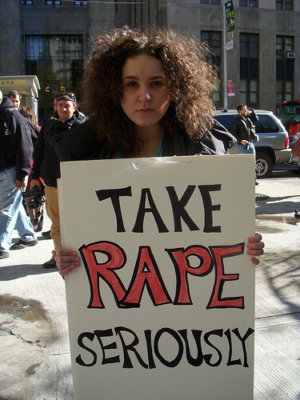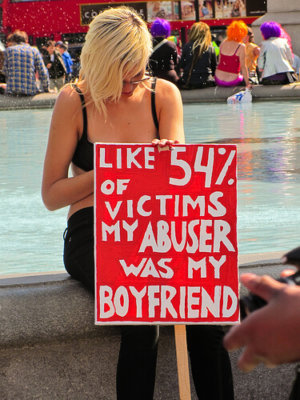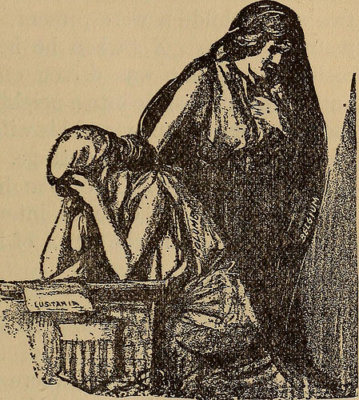Sexual Assault – the Psychological Effects We Need to Recognise

By: Women’s eNews
According to the Office of National Statistics, a staggering 85,000 women and 12,000 men are raped in England and Wales every year, and almost half a million adults are assaulted sexually annually.
With only around 15% actually reporting their experience to the police, how many are finding the support they need to deal with the psychological aftermath?
To be sexually assaulted is undoubtedly a traumatic event, regardless if it was unwanted sexual touching, harassment, or an attempted or completed rape.
What are the long-term affects of sexual assault exactly? And how can you manage them?
1. Post-Traumatic Stress Disorder
Post-traumatic stress disorder (PTSD) involves ongoing symptoms of anxiety and stress after a terrifying or overwhelming experience, and one study found that two in five women who experienced sexual violence will develop PTSD.
Even more concerning, another study showed that those who experienced sexual abuse were more likely to develop PTSD than those who had lost a loved one or been in a major traffic accident. Symptoms can include:
- intrusive or disturbing memories of the event
- avoiding persons or situations that cause anxiety
- flashbacks
- Recurrent dreams and difficulty sleeping
- Feelings of detachment from your own body
- Experiencing the world in a dreamlike or distorted way
- Difficulty concentrating an being easily startled
(See our guide to post-traumatic stress disorder for more information).
2. Guilt and Self-Blame
Sadly many sufferers of sexual asssault then turn the experience on themselves in the form of self-blame, haunted by questions like, “What if I hadn’t gone to that place that day? Was I too reckless? What if I fought harder?” When the responsibility lies with the person who carried out the attack, not you.
3. Low Moods and Depression
Are you experiencing low or flat moods, or have you lost interest in the hobbies and activities you used to enjoy? Have you stopped planning your future even? And do you feel detached from everyone around you, as if you can no longer connect?
These are all symptoms of depression, a common side effect of sexual assault. The same study that looked at post-traumatic stress disorder found that a good half of the participants were suffering severe depression even six months after they experienced an assault.
[Read our comprehensive Guide to Depression for more symptoms and for treatment advice.]
4. Reckless or Self-Destructive Behaviours
It is not unusual to turn to coping strategies after an ordeal. Although such activities might feel like they ease your emotional distress, they do not address the source of the problem and can just cause more damage, both emotionally and physically.
Destructive coping strategies you might find you turn to can include:
- alcohol and substance abuse
- starting smoking or smoking more than usual
- disordered eating (overeating, under eating, binge eating, purging)
- unsafe sex
5. Pain and Other Physical Symptoms
One unexpected but common consequence of sexual assault is the onset of chronic pain and other unexplained medical symptoms. A 2013 study at the University of North Carolina showed that even 3 months after assault sufferers of sexual assault were prone to suffering physical pain in areas of their body that had nothing to do with the attacks they suffered, and also suffered ‘somatic’ symptoms like insomnia, headaches, and nausea.
6. Relationship Difficulties

By: Garry Knight
It may be difficult to participate in consensual sexual activity after an assault. You may experience some of the following:
- low libido
- decreased sexual pleasure
- flashbacks
- panic attacks
- pain during sex
- inability to tolerate penetration
- fear of having sex
[You might find our Guide to Sexual Problems useful.]
But sexual issues are not the only obstacle you might encounter in the aftermath of a sexual assault.
Many individuals find that a sexual assault negatively impacts on their trust and connections with others. And this is not limited to partners but can be friends, family members, and colleagues too.
In one study, all participants reported difficulties in emotionally engaging and being vulnerable with their partner.
Another study found that survivors of sexual assault had lower levels of growth in their interpersonal relationships compared to individuals who had experienced other traumas.
So what can I do?
If you thought you could just ‘get over’ an experience of sexual assault or harassment, it’s time to see that such an event can cause ongoing effects that nobody should have to deal with alone.
It’s important to turn to friends and family for support, but if reading the above you find you recognise yourself in many symptoms, don’t overlook professional help as well. You can talk to your GP, or if that feels too intimidating, consider the support of a private counsellor or psychotherapist (if finances are an issue, there is also low-cost counselling options available in the UK).
You might also find there are support groups in your local area where you can find the understanding of others who have experienced something similar.
The following charities can provide useful information for you:
- Rape Crisis England & Wales: This site will also direct you to your local rape crisis centre in England or Wales
- Rape Crisis Scotland: This site will also direct you to your local rape crisis centre in Scotland
- Rape Crisis Network Ireland: This site will also direct you to your local rape crisis centre in Northern Ireland or the Republic of Ireland
- Rights of Women: Legal advice on women’s rights issues
- Survivors Network: Information and support for survivors of sexual violence
- Survivors of Sexual Abuse Anon: a peer support group based on an adapted version of the 12 step program
- Survivors UK: Support for those affected by male sexual abuse
- SV2: Information and support for survivors of sexual violence
- The Survivors Trust: Information and support for survivors of sexual violence
- Victim Support: Support for victims of crime, including sexual assault
- Women’s Aid: Providing services for victims of domestic violence
Would you like to share your experience of surviving sexual assault with our community? Or share a useful resource we’ve missed? Do so below.





